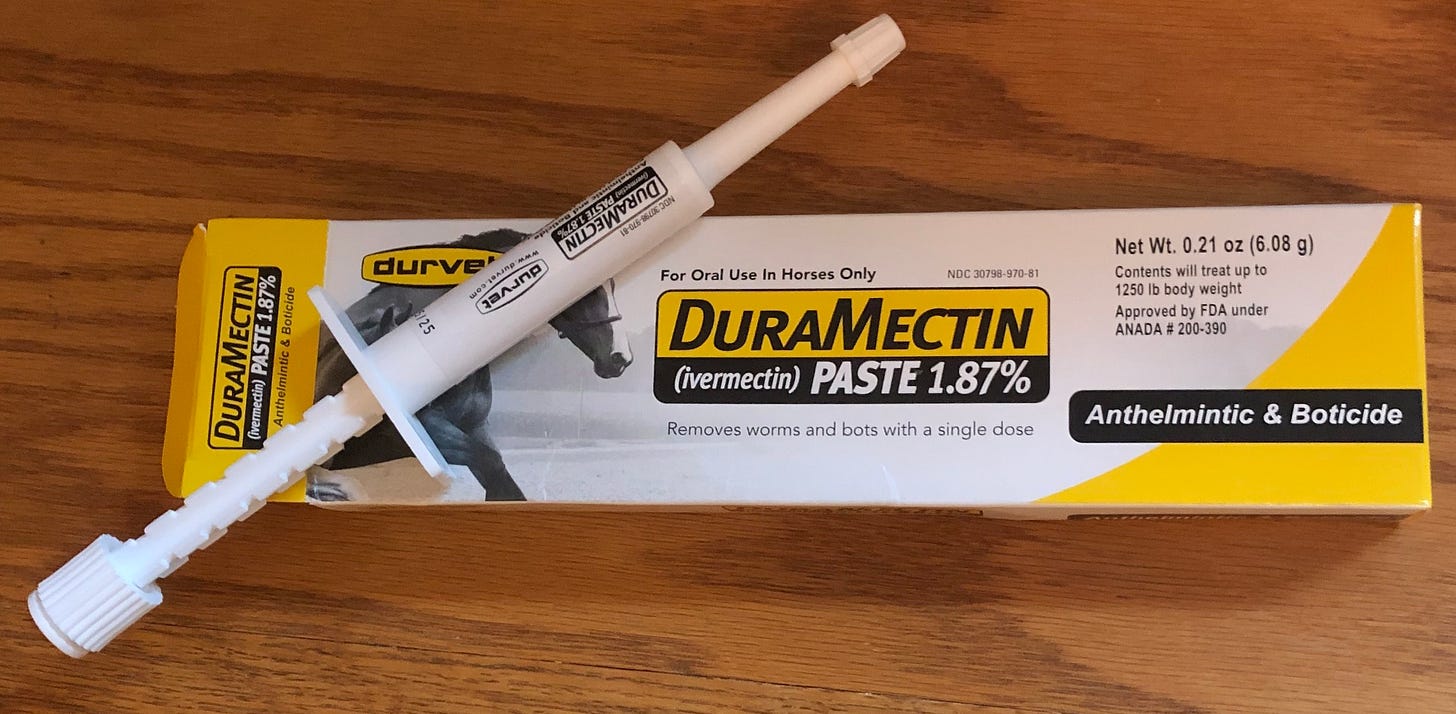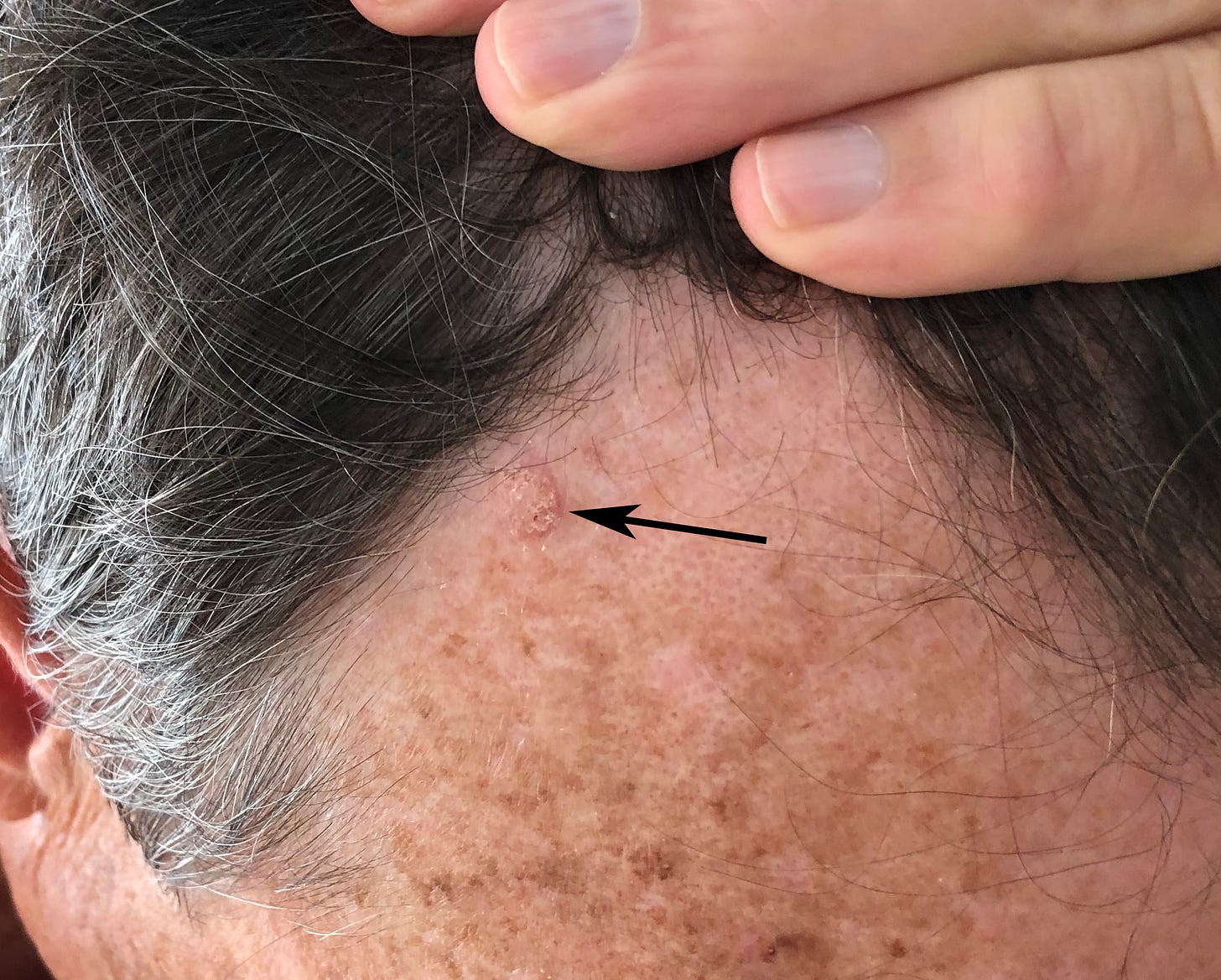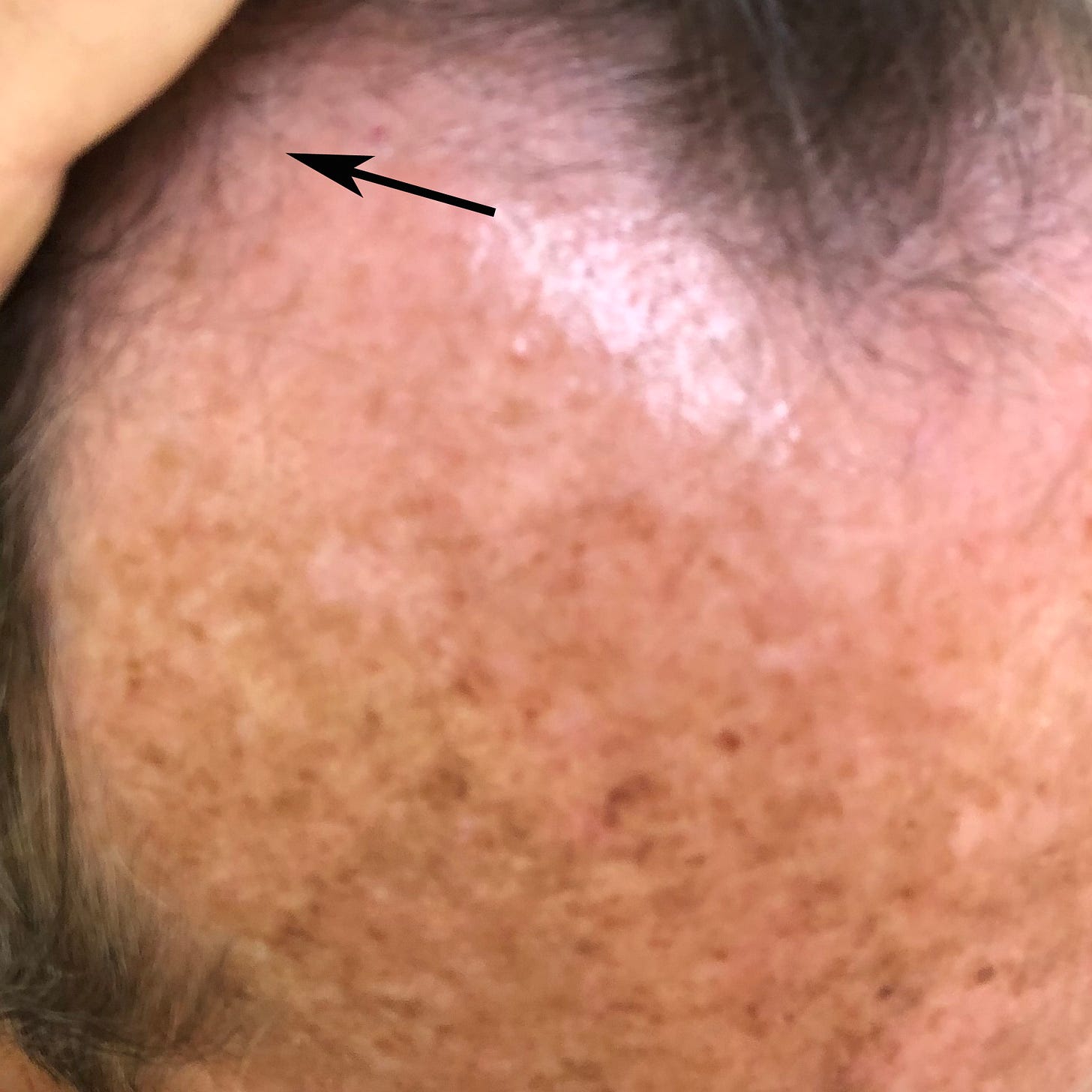Fenbendazole Can Cure Cancer presents Case Reports of people who have treated their own cancers along with other articles to help understand how fenbendazole works. Previous articles covering other cancers are in the Archives link. This article involves another safe, inexpensive, widely available anti-parasitic medicine, ivermectin, and its effects on a benign surface (skin) cancer.
This Case Report involves a novel use of ivermectin to treat a surface skin cancer, a squamous cell skin cancer. According to the Mayo Clinic, squamous cell carcinoma of the skin is a common form of skin cancer that develops in the squamous cells that make up the middle and outer layers of the skin.
Squamous cell carcinoma of the skin is usually not life-threatening, though it can be aggressive. Untreated, squamous cell carcinoma of the skin can grow large or spread to other parts of your body, causing serious complications.
Most squamous cell carcinomas of the skin result from prolonged exposure to ultraviolet (UV) radiation.
Squamous cells are found in many places in your body, and squamous cell carcinoma can occur anywhere squamous cells are found. Squamous cell carcinoma of the skin refers to cancer that forms in the squamous cells found in the skin.
Case Report
The following is a Case Report of a 63-year-old man with a squamous cell cancer who used topical application of ivermectin paste to eradicate the lesion.
As a regular reader of this Substack my antenna are up with respect to cancer in the people around me and certainly to any cancers that develop in me! I am light-skinned, freckled and spend a lot of time in the sun. I could do a better job of applying sunscreen but I’m not sure if sunscreen is medicine or poison, just so you know where I stand on that. I tend to develop basal and squamous cells cancers from time-to-time so I get regular 6-month dermatologist inspections.
Diagnosed squamous cell lesion January 30, 2023 after about 3 days of ivermectin use
About 6 months ago I felt a bump and scab on my forehead at my hairline. I watched it for a few weeks hoping it was a bug bite or something and it would go away. It didn’t. So after some prodding from my wife, I made an unscheduled appointment with the dermatologist.
The dermatologist determined that it was a squamous cell lesion and suggested Mohs surgery to deal with it. As I said I have had several squamous cell cancers over the years and while Mohs surgery did eradicate them, the resultant holes took a long time to heal and the scars were permanent.
I was aware of fenbendazole for solid tumors like breast cancer, colon cancer etc. from this Substack and my first thought was to mix up some powdered fenben into some skin cream and experiment. However I had also read that ivermectin aka horse paste, might also be a useful thing to try too. In fact, Tang (2021) reported that ivermectin was effective against melanoma so I figured why not.
I ordered some ivermectin from Amazon, and started applying a dab of it to the lesion. I applied it at bedtime and on occasion during the day, if circumstances and memory permitted.
I didn’t get a photo of the squamous cell patch before I applied any ivermectin because I didn’t think of documenting my case until a few days after starting the ivermectin. What was noteworthy was that the patch of skin appeared to become flakier and the redness surrounding the area decreased after about two weeks.
Same patch of skin on February 11, 2023 after two weeks of ivermectin application
After about a month of ivermectin, the patch had flaked off completely and the skin was clear. I stopped the application of the ivermectin, and kind of forgot about the whole episode. Recently it dawned on me that I should send in my story as it might be of interest to others, so I took another photo on August 1, 2023 where the squamous cell growth used to be. Looks like normal skin to me, without any scarring at all.
Photo of area where squamous cell lesion was after about four weeks of daily ivermectin application. Photo taken approximately 8 months later following the one month of ivermectin treatments.
Q: Any side effects noticed?
A: No, nothing.
Q: You said you had other squamous cell cancers, how were those typically treated, if at all?
A: Like I said, they would do something at the hospital called a Mohs surgery where they keep cutting the skin out until no abnormal cells are detected under the microscope. Some of the scars that I have, mostly on my back, are deep and visible. The main reason I used ivermectin vs fenbendazole is that the ivermectin was already mixed up in a paste that was easy to use. Next time I get a skin issue I’ll probably try the fenbendazole paste approach to see how that works. I can always revert back to ivermectin if I have to.
Q: Did you consult with the dermatologist and tell them what you were doing with the ivermectin?
A: No. That would be like rubbing their noses in it. I’m curious to see if next time I go see them if they will ask about the squamous cell cancer they diagnosed.
If you’re a regular reader of the Comments sections of these articles, you’ll notice that we get many questions regarding the use of ivermectin on cancers. There is a substantial scientific literature on the possible mechanisms and uses of ivermectin to treat most solid tumor cancers. Below is the Tang (2021) reference cited in the Case Report for those interested. In fact, in the near future we will explore the similarities and some of the differences between fenbendazole and ivermectin, both safe, available, inexpensive antiparasitics, as cancer treatments.
Regarding this squamous cell skin cancer Case Report, it would be great if we all could avoid expensive and painful interventions when we develop these skin cancers. Not only did ivermectin eradicate the cancer, it did so without leaving a trace. And it did it quickly, in about a month, and inexpensively. It makes sense to try something like ivermectin paste while you’re waiting for traditional treatment or as a first-line treatment to hopefully avoid the traditional treatments altogether.
References
Tang, M., Hu, X., Wang, Y., Yao, X., Zhang, W., Yu, C., Cheng, F., Li, J., & Fang, Q. (2021). Ivermectin, a potential anticancer drug derived from an antiparasitic drug. Pharmacological Research, 163, 105207. https://doi.org/10.1016/j.phrs.2020.105207
Disclaimer:
Statements on this website have not been evaluated by the Food and Drug Administration. The contents of this website is for educational and informational purposes only and is not intended to be a substitute for professional medical advice, diagnosis or treatment. This website does not provide any kind of health or medical advice of any kind. Always seek the advice of your physician or other qualified health provider with any questions you may have regarding a medical condition. The case reports presented reflect the real-life experiences and opinions of other readers or users of the website. The experiences of those readers or users are personal to those particular readers/users and may not necessarily be representative of all readers/users. We do not claim, and you should not assume, that all other readers/users will have the same experiences. Do you own research, consult with relevant medical professionals before attempting to self-treat for any condition.






